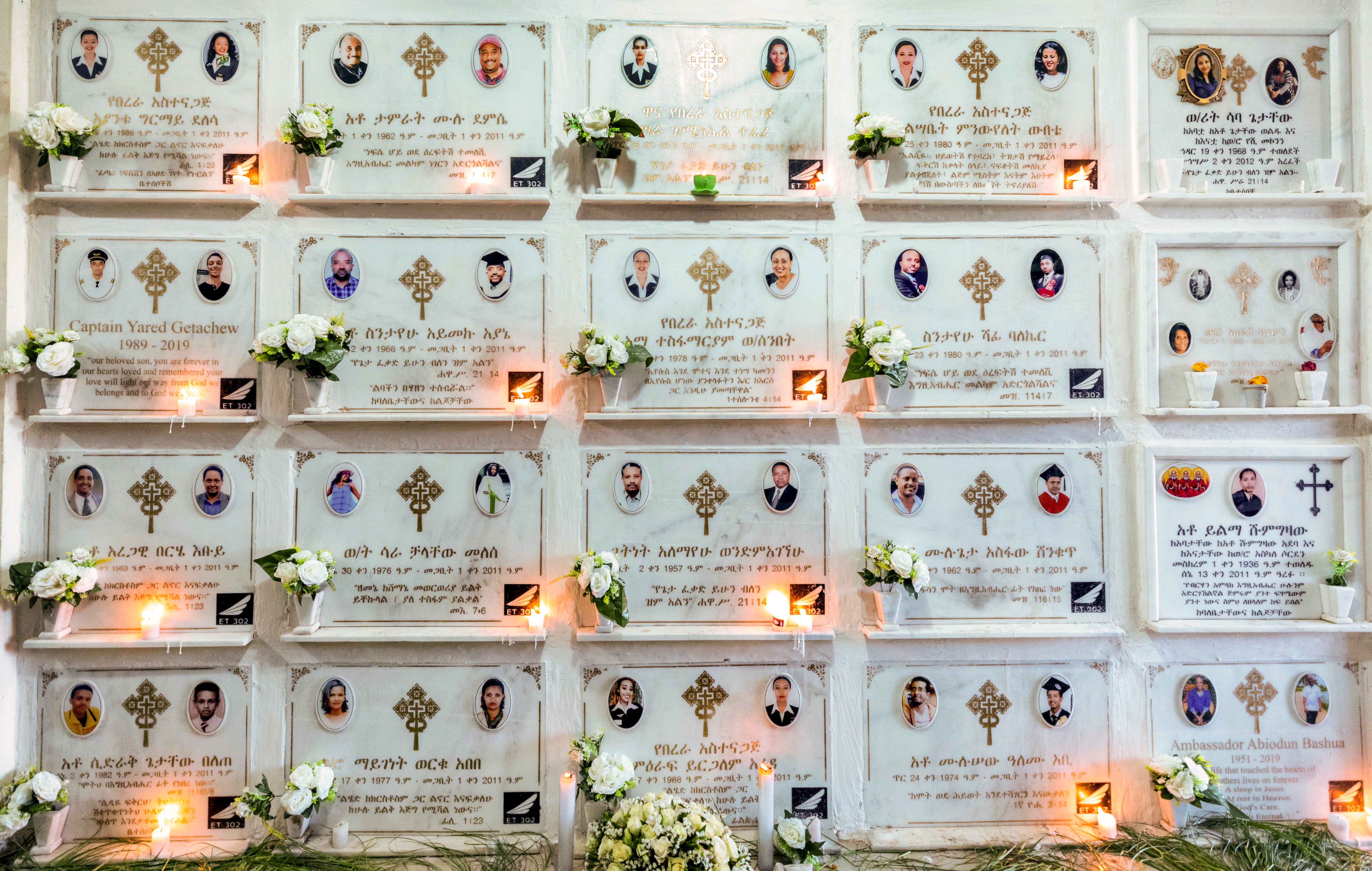Pain and terror felt by passengers before Boeing Max crashed can be considered, judge rules
A federal judge is ruling that families of passengers who died in the second crash of a Boeing 737 Max can seek damages for the pain and terror suffered by their relatives before the plane crashed in Ethiopia

Your support helps us to tell the story
From reproductive rights to climate change to Big Tech, The Independent is on the ground when the story is developing. Whether it's investigating the financials of Elon Musk's pro-Trump PAC or producing our latest documentary, 'The A Word', which shines a light on the American women fighting for reproductive rights, we know how important it is to parse out the facts from the messaging.
At such a critical moment in US history, we need reporters on the ground. Your donation allows us to keep sending journalists to speak to both sides of the story.
The Independent is trusted by Americans across the entire political spectrum. And unlike many other quality news outlets, we choose not to lock Americans out of our reporting and analysis with paywalls. We believe quality journalism should be available to everyone, paid for by those who can afford it.
Your support makes all the difference.Families of passengers who died in the crash of a Boeing 737 Max in Ethiopia can seek damages for the pain and terror suffered by victims in the minutes before the plane flew nose-down into the ground, a federal judge has ruled.
The ruling means that lawyers for the families will be able to call experts to testify about the victims' pain and suffering before the 2019 crash, which killed everyone on board.
The ruling posted late Tuesday by U.S. District Judge Jorge Alonso in Chicago is a setback for Boeing, which had argued that evidence about the victims' suffering would be speculative.
The decision comes in a case over compensation for the relatives of people who died in the second of two deadly crashes involving Boeing's best-selling plane. A trial is scheduled to begin June 20.
Boeing has admitted responsibility for the deaths of the passengers and agreed not to blame the pilots or anyone else. In exchange, lawyers for the families agreed not to seek punitive damages against the company. The trial will determine compensation for things such as burial expenses, loss of income, and grief suffered by immediate family members.
At a hearing last week, Boeing lawyers sought to block testimony about pain and suffering by passengers in the minutes before the crash. They said the testimony would be inflammatory and have an unfair impact on jurors.
Boeing lawyers also said that Illinois law — in effect even though the case is being tried in federal court — bars compensatory damages for the passengers’ pain and suffering because they died the instant the plane hit the ground.
Attorneys for the families say their clients can’t stop thinking about the terror their loved ones suffered as the plane repeatedly dove and climbed before entering a final nosedive at nearly 700 miles per hour. The attorneys want to call experts who would testify that the passengers likely suffered physical injuries and emotional trauma before the crash.
There are bound to be further arguments over rules of the trial, including whether to call the crash an accident. One of the families' lawyers, Robert Clifford, said he wants to call the crater left by the crash a crime scene.
In 2021, Boeing reached a settlement with the Justice Department to avoid criminal prosecution for misleading federal regulators who approved the Max by hiding details of a flight-control system implicated in the crashes. The company received a $244 million fine and agreed to pay compensation to airlines and victims, raising the cost of the deal to $2.5 billion.
In all, 346 people died in the two crashes involving Max jets shortly after airlines around the world began using the planes. In October 2018, a Lion Air Max crashed in Indonesia, killing all 189 people on board. Less than five months later, in March 2019, an Ethiopian Airlines Max carrying 149 passengers and eight crew members crashed six minutes after takeoff from Addis Ababa.
Boeing has settled with most families of people on board the Lion Air jet and many of those on the Ethiopian plane, including several this week. But several dozen families of those who were on the second plane are pressing ahead, and a trial is scheduled to start June 20 in federal court in Chicago.
Boeing is headquartered in Arlington, Virginia, but it was based in Chicago when the first lawsuits were filed in 2019.